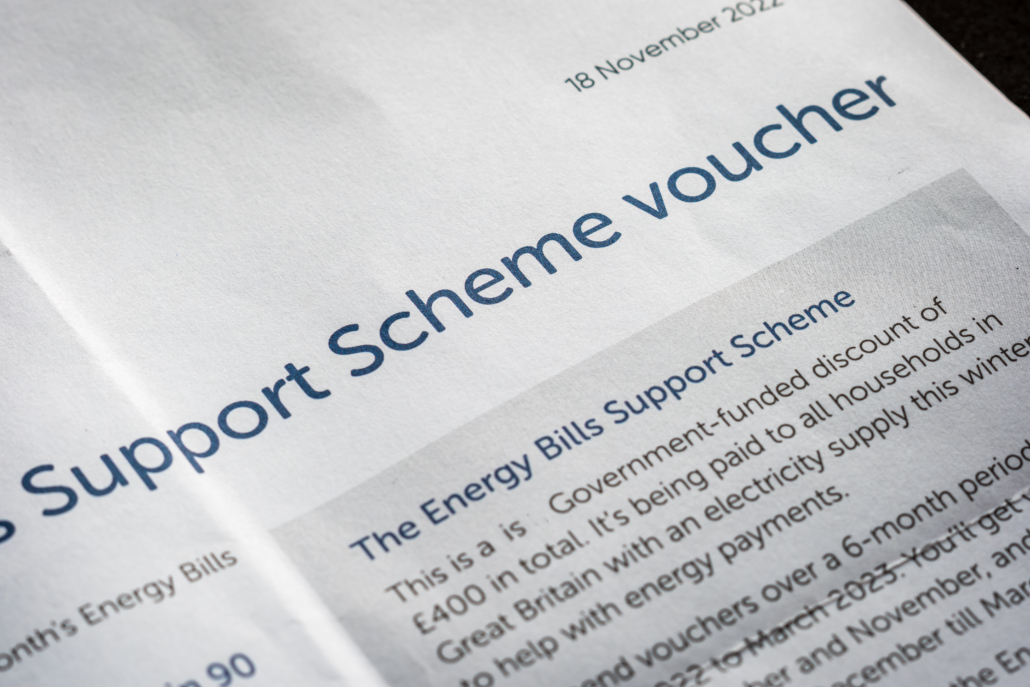#EconomicPolicy
#EconomicPolicy78
Contacts:
Professor Thiemo Fetzer: T.Fetzer@warwick.ac.uk
Dr Ludovica Gazze: Ludovica.Gazze@warwick.ac.uk
Sheila Kiggins, Research Communications Manager, University of Warwick: s.kiggins@warwick.ac.uk
Uniform cap on energy prices for consumers
UK evidence that affluent families benefit more – and incentives for energy efficiency are weakened
The energy price guarantee introduced by the UK government in 2022 to protect families from soaring gas and electricity bills disproportionately benefitted well-off households. What’s more, the guarantee weakened incentives for all households to invest in energy efficiency upgrades. These are among the findings of research by Thiemo Fetzer, Ludovica Gazze and Menna Bishop, which uses a new measurement framework to analyse the impact of energy price shocks across England and Wales down to the level of individual households.
The results of their study suggest that better-targeted policies in the aftermath of energy price shocks, such as what followed Russia’s invasion of Ukraine, would be cheaper and retain the incentive to invest in efficiency measures. In addition, given that energy price shocks have a more pronounced effect on relatively more affluent areas, a well-designed carbon tax could be progressive.
Which households are most affected by energy price shocks? What can recent price rises in wholesale energy prices tell us about the likely impact of carbon taxes? And what policy interventions will be most effective?
The UK is highly exposed to changes in energy prices. It is disproportionally reliant on natural gas for heating. It has some of the oldest and least-well-insulated housing stock in Europe. And there are high levels of fuel poverty.
A new measurement framework developed by Professor Thiemo Fetzer of the University of Warwick and the University of Bonn, together with Dr Ludovica Gazze and Menna Bishop of the Department of Economics at the University of Warwick makes it possible for researchers to model the impact of energy price shocks across England and Wales down to the level of individual households.
The framework can also be used to analyse the effect of a range of policy interventions, and to evaluate wider socio-economic impacts of the energy crisis such as changes in crime levels. IT also enables important insights into the likely consequences of a carbon tax.
Professor Fetzer said:
Our measurement framework provides the means to evaluate policy interventions before they are implemented, turning evidence-based policy-making from an aspiration into practical reality.
More importantly, we can evaluate policy choices, study impacts and comment on the state’s performative and informational capacity in near real-time. This is particularly salient since the Covid-19 pandemic highlighted the relatively poor state of the UK’s public sector’s performative state capacity using public data for social good.
The measurement framework draws information from the Energy Performance Certificate (EPC) database, which covers more than half of the houses in England and Wales, supplemented by anonymised individual-level meter reading data and granular data on energy consumption.
Using the framework to quantify the impact of the energy crisis on UK consumers, the researchers find that:
- The energy price shock had a more pronounced effect on more affluent areas – those with a higher proportion of high-income, high-status occupation, high-education and older individuals. This suggests that a well-designed carbon tax could be progressive.
- The UK government’s decision to implement an untargeted price cap disproportionately benefitted well-off households, as energy use increases with income.
- By lowering the cost of energy use, the energy price guarantee (EPG) weakened incentives to invest in energy efficiency upgrades by around 30%.
- Better-targeted policies would be cheaper and retain the incentive to invest in efficiency measures.
Dr Gazze commented:
If a carbon tax is introduced, the cost of energy derived from fossil fuels will rise. The energy crisis provides a unique opportunity to study the economic and social effects of higher energy prices, allowing us to draw some conclusions about the potential impact of carbon taxation in the residential building sector, and to make evidence-based policy recommendations to the government.
‘The UK has a wealth of under-used data that can be used to inform analysis such as ours. We hope that our study quantifying the impact of the current energy crisis on UK households will help to inform other countries and regions as they work towards the decarbonisation of their residential building sectors.
Distributional and Climate Implications of Policy Responses to Energy Price
Authors:
Thiemo Fetzer, Ludovica Gazze and Menna Bishop (University of Warwick)








